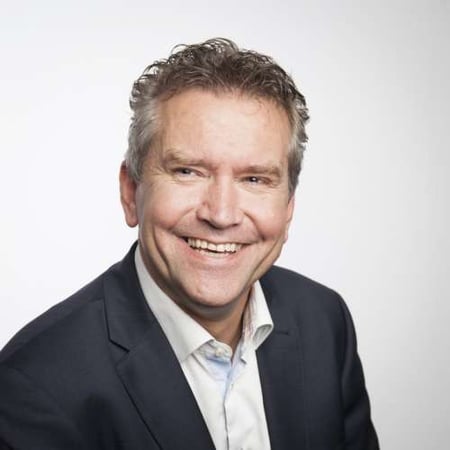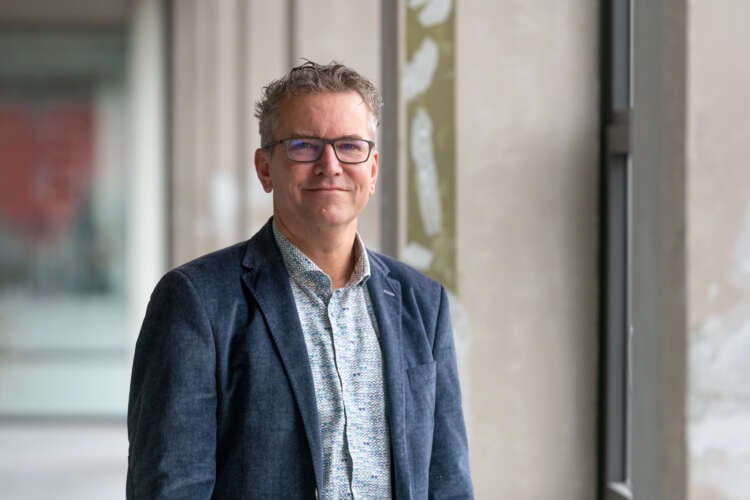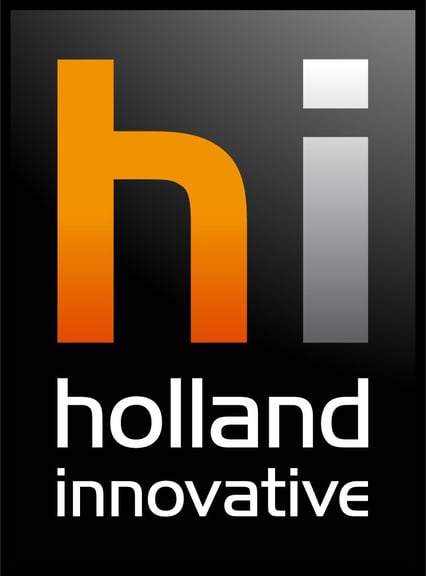The high-tech and medical industry is responsible for a large part of our economic growth, and therefore of our prosperity. It is now well known that this hardware-dominated world cannot do without software expertise, but good process control, reliability and project management are at least as important. Holland Innovative helps the high-tech and medical industry with this, both in projects on location and through training. In a series of articles, we show how. Today: Hans Meeske, founder and director/owner.
Literally from an attic room, Hans Meeske started Holland Innovative, with the aim of helping companies in the high-tech industry to optimize. This is done by offering expert people who can help the companies, as well as by transferring the knowledge within the companies and making them grow as a result. The most important means for this: project management and training. And what applies to his clients also applies to his own employees: in order to continue to stimulate them to get the best out of themselves, Meeske regularly invites his colleagues to training and coaching sessions. In addition, he actively sends them away from the office, to share their own expertise with the outside world on the topics that really matter. Meeske: “This is not only good for the outside world, but also for the colleagues themselves. It is precisely by stepping out of your comfort zone that you learn new things and find out about your hidden talents.”
Six Sigma Principles
If someone has learned the usefulness of this, it’s Meeske himself. After years of traveling around the world in various roles at Philips, he decided to take matters into his own hands. First with his own line of 3D printed products (“at a time when that wasn’t hot at all, I managed to get jewellers very enthusiastic about the possibilities of this”), but later on more at the cutting edge of process and product development. “I was 38 years old, quit my job for good and took out an extra mortgage on my house, retreated to my attic room and thought up the first training sessions there, based on the SixSigma principles of process improvement and quality promotion. Fortunately, I received support from Philips and the University of Amsterdam also helped me. Otherwise, I would never have been able to do it.”
Yet the first assignment – in 2007 – came just a little too quickly. “I had said yes to an assignment for a new Philips factory in Poland, but I didn’t have any people at all who could carry out the job. So I had no choice but to do it myself. I rented a hotel in Best, near Eindhoven, and just started.” It led to a period in which Meeske gave training three days a week and continued to build his business for the rest of the week.
Shorter life cycles

In 2019, Holland Innovative has become a fast-growing company with 30 employees in Eindhoven and 10 in Enschede. The mission is contained in a drawing of a house with three pillars: Project management, Product & Process Development, and Reliability Engineering. “With the design of this house, we can optimise our product development process and project managers and train and coach our engineers and developers in implementation projects.
Hans Meeske, Holland Innovative
The world is changing at a rapid pace, which means that the life cycle of products is becoming ever shorter. In order to be able to keep up with this pace, it is important that products are considered carefully as early as the design phase. Products must be as reliable as possible, be able to reach the market quickly, but above all meet the expectations and needs of the customer. And if something still goes wrong, the cause will have to be found quickly and in a structured manner. In a setting of open innovation, this is essential.”
“To be able to work for us, you have to have detective-like qualities.”
Especially when the complexity of processes and organizations increases, the approach of Holland Innovative can help, says Meeske. “Our methodical, systematic approach is often lacking in these companies, especially in a region like Brainport, where a lot of attention is paid to the development of new complex products, but less to the perfect execution of that process. Our people come from the world of mechanical engineering, so they understand what is needed. Our specific added knowledge directly increases the reliability, and the predictable life span of a product.”
Holland Innovative is often called upon to help when there is a specific problem that cannot be solved by the owner. “Often they have been looking for the cause for months, but they can’t figure it out. We are then flown in and know how to solve it in a fraction of that time.” Meeske says that expertise and experience play an important role, but that his company’s structured approach is decisive. A system of root cause analysis, in which the ‘root’ of the problem is exposed, is the guiding principle. “To be able to work for us, you have to have detective-like qualities.”
Champion’s League
Internally and externally, Holland Innovative always works on the principle that knowledge should be shared as much as possible. “We prefer never to return to a department that we already worked for, but to be honest, this is not always the case. For example, because people change positions and do not always transfer their knowledge and experiences well. Internally we are keen to take good control over this kind of succession issues. We want to be a real talent development machine in which our people are given the opportunity to grow constantly. With a kind of master/companion system, the ‘gurus’ within our company train their own successors. Yes, if you’ve worked here, you must have become wiser yourself. You work on that every day. Me too, yes indeed.”
The name Holland Innovative was a well-considered choice, says Meeske: “The Netherlands is an innovative country, I want to contribute to that branding, but I also want to make use of it. There is certainly some chauvinism in what we do: we radiate the warm, orange feeling.” But the result remains leading. “We are in the Champion’s League of high-tech. We have Messi, Xavi and Iniesta. Every year we want to win the Champion’s League, so we have to constantly ask ourselves who will be the next Messi, that’s our challenge. That’s why we’re so keen on our internal talent development.”





.jpg?width=200&name=Holland%20Innovative%20summer%20academy%20-%20Project%20Management%20Masterclass%202%20(2).jpg)